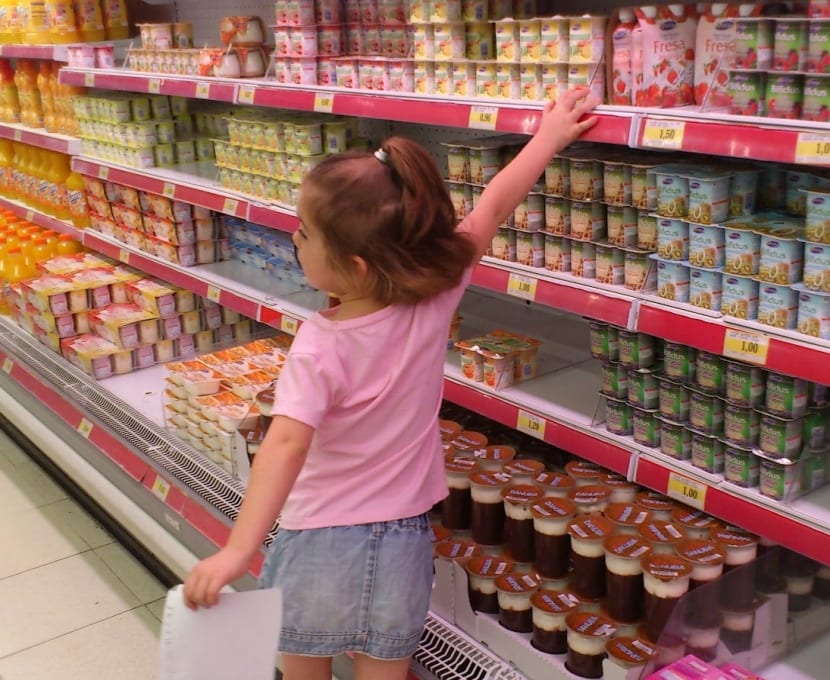
Poverty can be a complicated subject that can be due to a variety of reasons that are difficult for young children to understand. Despite the problems related to hunger and lack of living that can be complicated, it is necessary to talk to children about poverty. If you are a father or mother and you worry about putting a hot plate of food on the table every day or having a place to sleep… it can be even more difficult to carry on this conversation.
But without a clear explanation, children may not understand why some children have free meals at school, why others have so much and others nothing, or why there are homeless people who ask for money or food. Children can make inaccurate assumptions about people living below the poverty line.
Why you should talk about poverty
At some point, your child will notice that some people don't have as much money as others, and you may have some questions about it. Many of those children have working parents, but low wages and unstable work leave them living below the poverty line. Some of your child's classmates are likely to have problems with eating or homelessness.

Perhaps you have ever told your child to eat all the food because there are poor children who have nothing to eat, but that for your child is too abstract for his childhood understanding. There are many people who struggle with poverty much closer to home. Talking about real life situations in your community can help you better understand what poverty is.
Children living in poverty can experience lifelong consequences. Poverty affects families in the following ways:
- Educational problems. They have more trouble learning or continuing their education.
- Behavior problems Poverty affects a child's social and emotional development. Children who grow up in poverty may have more behavior problems.
- Physical health problems. Child poverty is linked to higher rates of obesity, impaired language development, or an increased risk of injury.
- Mental health problems. The toxic stress associated with poverty increases the risk of psychiatric disorders.
- Reduction of general well-being. Studies show that poverty is the greatest threat to children's well-being and that it can have lifelong consequences.
Talking about poverty with children can be an opportunity to educate your child, as well as a time to foster compassion for others. When your child understands a little more about why some people live differently, you may feel more empathy for people living in poverty.

Look for opportunities to broach the topic
Rather than bringing the subject of poverty out of nowhere, look for opportunities to bring it up naturally. That is when you can talk about it more specifically. For example, when there are food drives at school, talk with your child about why they are donating products. OR When there is a holiday gift drive, explain that some families may not have enough money to buy gifts.
The tough questions
You need to be prepared for tough questions. At some point, your child will notice that their peers or people in the community live in poverty. You have to be prepared for questions such as:
- Why does Juan wear the same clothes every day at school?
- Why is that person ordering food outside of the supermarket?
- Why are there people asking for money on the streets?
- Why does Pedro say they give him free food?
When your child asks questions, it will be a sign that they are ready to receive this type of information, so you should give them the appropriate answers for their age.
Simple explanations to primary school children
Children do not understand about money or the economy. A commercial about child hunger can raise innocent questions like, "Why don't your parents go to the grocery store and buy you more food?"

Between the ages of 5 and 8, children are ready to learn simple explanations about poverty. You can say something like, "Some people can't earn enough money to buy food or a house to live on." At this age, you don't need to give extensive explanations about the factors that can prevent someone from earning a living wage. Conversations about disabilities, substance abuse, and a poor economy can wait until adolescence.
Explanations in preadolescents and adolescents
Tweens and teens have the ability to begin to understand some of the reasons why poverty exists. You can talk about the factors that contribute to poverty, such as:
- The income gap between rich and poor
- Lack of jobs that pay adequate wages
- Absence of education
- High healthcare and childcare costs
- Substance abuse and mental illness
- Disabilities
- Divorce
- Generational poverty
In addition to talking about the causes of poverty, it is necessary to discuss the effects of it. You should offer a simple explanation of government services and resources established to help people, but Also talk about how difficult it can be for people to get out of poverty.
Pay attention to the messages you send
The things you do, like the things you don't do, send messages to your child about people living in poverty. For example, if you walk past a beggar without making eye contact, your child may assume that the homeless are below you. so it is important to explain why you do not give money to strangers on the street.
You can say something like: “I don't give people money because I'm not sure how they will spend it. But I could buy them some food if I see that they really need it. " Or, explain that you donate money to programs that help the homeless have food to eat and a shelter to stay. It is also important to avoid sending a message that hard work always prevents poverty. If you say things like, "I work hard so we can live in a nice house," your child may think that people living in poverty are lazy people who don't want to work.